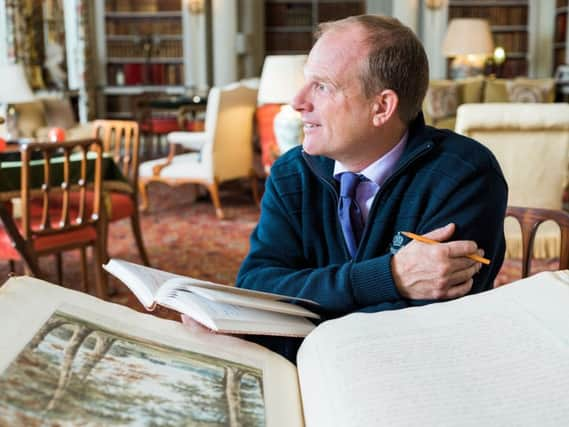Alan Titchmarsh to open new Woburn Abbey exhibition


Recognised as the first person to invent and use the title ‘landscape gardener’, Humphry Repton regarded himself as the rightful successor to Lancelot ‘Capability’ Brown.
Repton produced over 400 designs and schemes for gardens great and small.
Advertisement
Advertisement
Open to the public between March 23 and October 28 2018, the new exhibition explores the fascinating relationship between Repton and one of his greatest clients.
On public display for visitors to see for the first time will be his most elaborate and comprehensive ‘Red Book’, his famous presentation document of proposed designs.
His Red Book for Woburn was commissioned in 1804 and illustrates his innovative plans for the Pleasure Grounds and Park, many of which were subsequently realised by the 6th Duke of Bedford.
In addition, the exhibition will give guests the opportunity to discover Repton’s other works for the family including at the picturesque Devon estate of Endsleigh, Oakley House and Russell Square in London. Never before seen unexecuted designs will feature alongside works of art and archival treasures, which bring to life the creative legacy of Repton.
Advertisement
Advertisement
There will also be Repton-related family trails, activities and events throughout the year.
The Duchess of Bedford said: ‘I am very happy to welcome Alan Titchmarsh to Woburn Abbey. The Abbey will be a major player in the national celebrations, supporting the work of The Gardens Trust and giving Humphry Repton the prominence he deserves.’
Martin Towsey, estate gardens manager said:‘I am proud that Woburn Abbey is marking the bicentenary of Humphry Repton with this captivating exhibition, which represents the culmination of 14 years of hard work by the Woburn Abbey Gardens team to restore the gardens to their former glory.’
Also by the Milton Keynes Citizen newspaper: